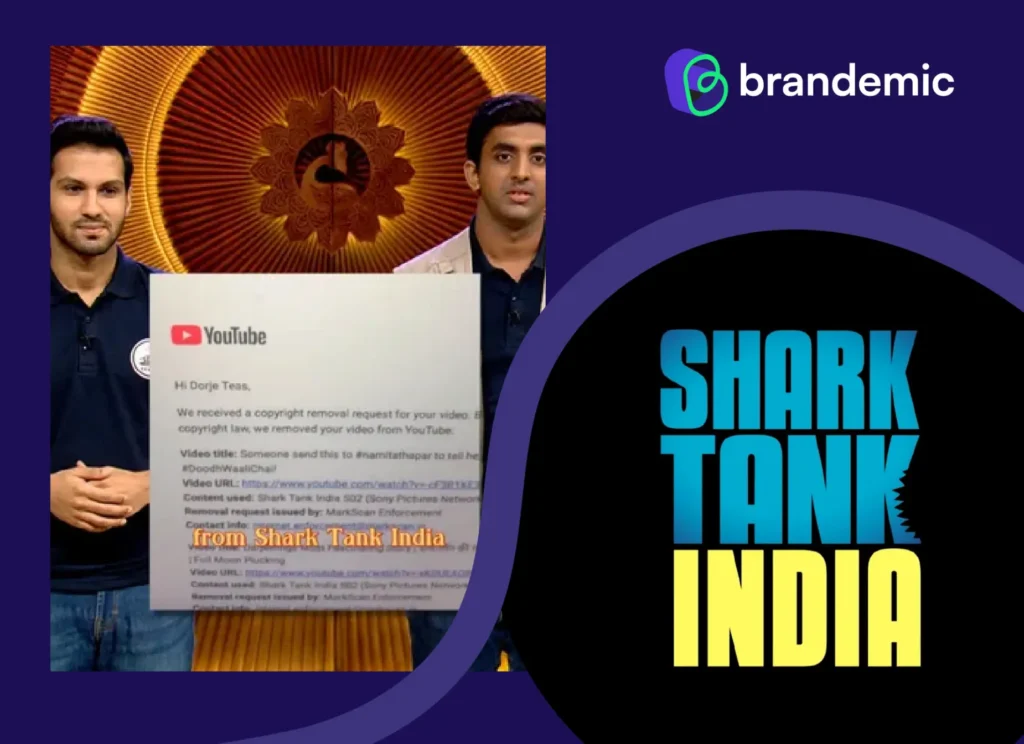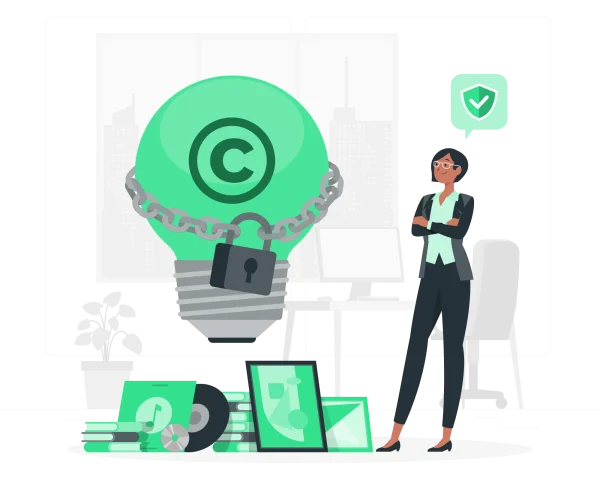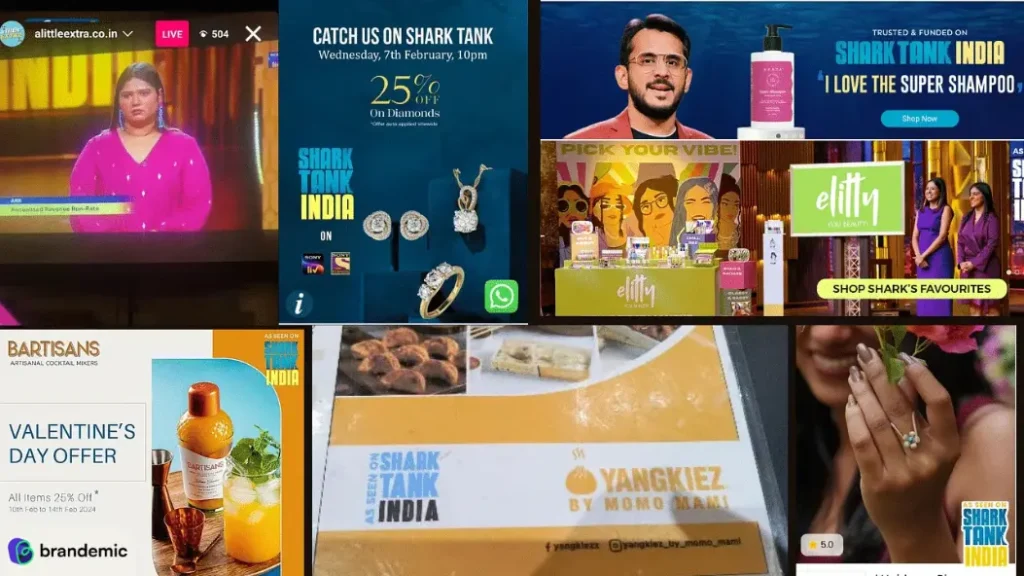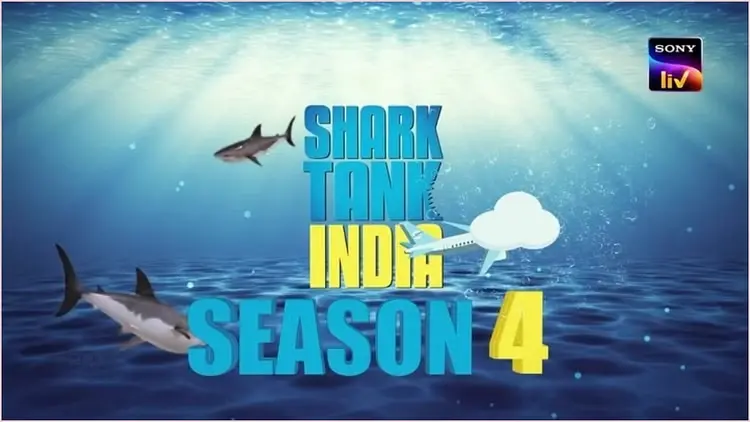Appearing on Shark Tank India can be a game-changer for startups, offering nationwide exposure, potential investment, and a boost in brand credibility. But while the spotlight has brought major rewards to many brands, it has also introduced legal hurdles that some were not prepared for—specifically copyright controversies related to intellectual property (IP) and the use of show footage in marketing. In Shark Tank India Season 3, these copyright issues and legal notice challenges raised questions for startups: Is the opportunity worth it, or do the risks outweigh the benefits?
This article explores the copyright issues and legal complexities that some startups faced in Shark Tank India Season 3 and examines if applying for Season 4 is a worthwhile move.

For many entrepreneurs, a Shark Tank India pitch can become the most valuable piece of marketing content they’ll ever produce. However, copyright challenges have emerged, largely due to the increased visibility that makes startups vulnerable to IP scrutiny and restrictions on the use of Shark Tank clips in marketing. Here’s a closer look at the main copyright issues encountered by startups.
Appearing on Shark Tank India provides invaluable exposure, but it also attracts intense public and competitor scrutiny. Several Season 3 brands were hit with copyright infringement claims after their products and brand names gained national visibility. Competitors often alleged that certain product designs or trademarks overlapped with their own, sparking copyright controversies and leading some startups to receive formal legal notices shortly after their pitches aired.

Indian startups often operate in highly competitive markets, especially in categories like tech, health, and beauty, where product uniqueness and patents are crucial. On Shark Tank India, some startups experienced copyright issues when competing companies claimed that their products or brand names were too similar to existing trademarks. This led to immediate copyright controversies and forced some brands to defend their IP publicly.
Many early-stage startups, focused more on product development than legalities, may not fully understand the complexities of copyright, trademarks, and IP protection. Some brands on Season 3 faced legal notice threats because they hadn’t secured copyright or trademark protections prior to their appearance on the show. This left them vulnerable to legal disputes that could have been avoided with proactive IP protection measures.
Receiving a legal notice or facing a copyright lawsuit can lead to substantial, unplanned legal expenses, which divert resources away from growth initiatives. Startups often find themselves needing to defend their IP claims in court, potentially spending thousands on legal fees, damaging their reputation, and sacrificing time and resources that could otherwise be spent on scaling their businesses.
While pitching on Shark Tank India is an effective way to reach a large audience, the actual footage from the show belongs to the production company. In legal terms, this means that entrepreneurs who post or use their pitch clips for promotional purposes without permission may be infringing on the show’s copyright. The Season 3 startups that did so faced potential copyright controversies and, in some cases, received takedown notices from social media platforms.

Some startups experienced blocked or removed posts after sharing Shark Tank clips on platforms like Instagram, Facebook, and LinkedIn. When the production company flagged these posts, the platforms complied by taking down the content.
Other brands received cease-and-desist orders after sharing their pitch videos in marketing. They were advised to either stop using the clips or face potential legal penalties for copyright infringement.
Losing access to Shark Tank pitch clips also means missing out on a powerful marketing tool. Many brands had to halt digital campaigns or social media promotions, limiting their ability to fully leverage the visibility gained from the show.
For startups that wish to use their Shark Tank pitch clips without legal risk, obtaining a licensing agreement from the production company is a potential solution. Licensing agreements, while potentially costly, allow businesses to use their clips legally and avoid copyright issues while continuing to leverage their pitch for marketing purposes. This can be an effective strategy, especially for startups looking to incorporate the clips extensively in social media or advertising campaigns.

For aspiring entrepreneurs, the benefits of Shark Tank India are undeniable, despite the copyright issues that have surfaced. Here’s an overview of the advantages and potential risks of applying for Season 4:
The show offers unparalleled national exposure. With millions of viewers, brands reach a broad audience that would otherwise be hard to access.
The sharks bring extensive experience and networks that can provide both funding and invaluable business insights.
Just being featured on Shark Tank India boosts brand credibility, enhancing trust among customers, investors, and partners.
Startups benefit from real-time feedback on their product or service, helping them understand market fit and improve their offerings.
As Season 3 revealed, businesses need to be prepared for potential copyright issues and the legal costs associated with defending their IP.
With high visibility comes high risk. Brands that don’t make a favorable impression could face negative feedback from both sharks and viewers.
A successful pitch can lead to an influx of orders, which may strain an early-stage business’s capacity, making fulfillment challenging.
If a startup is considering applying for Shark Tank India Season 4, they should take proactive steps to protect their intellectual property and avoid potential copyright issues.
Securing all intellectual property, including brand names, logos, product designs, and patents, reduces the risk of post-show copyright disputes.
An IP audit can help a startup identify any potential gaps in its IP portfolio, providing a roadmap for legal protections.
Consulting an IP lawyer before appearing on Shark Tank can help entrepreneurs navigate copyright and trademark laws, ensuring they are fully protected.
If a brand wants to use their Shark Tank clips for promotional purposes, securing a licensing agreement will ensure they can do so legally and without copyright infringement risks.
Shark Tank India Season 4 remains a valuable opportunity for startups, despite the copyright issues and legal complexities faced by brands in Season 3. For startups ready to take proactive measures to protect their intellectual property, the show can still provide unmatched exposure, credibility, and growth potential. But startups should be well-prepared: by securing copyrights, understanding the legal implications of content usage, and potentially licensing their pitch clips, entrepreneurs can fully leverage the benefits of Shark Tank India while minimizing the risk of copyright controversies.
The production company owns the footage, and using clips without permission can lead to copyright issues.
Social platforms comply with copyright laws and will take down any content flagged as copyrighted by the original creator, in this case, the production company.
The cost varies depending on the production company’s terms, but it can be a worthwhile investment for brands looking to make the most of their exposure on the show.
Yes, legal costs and restrictions on content usage can slow growth, impacting brand visibility and customer acquisition efforts.
Securing trademarks, conducting IP audits, and consulting with IP attorneys are all essential steps for startups aiming to protect their intellectual property and reduce legal risks.